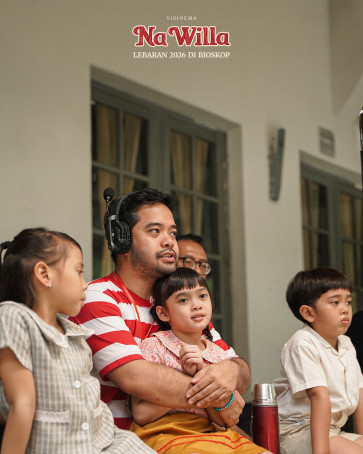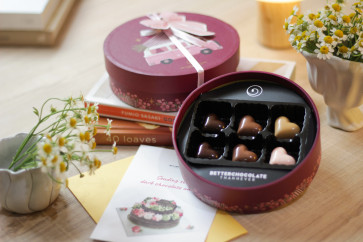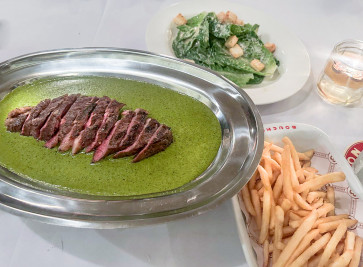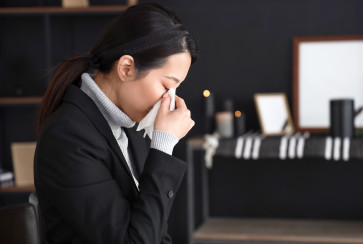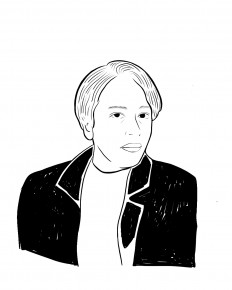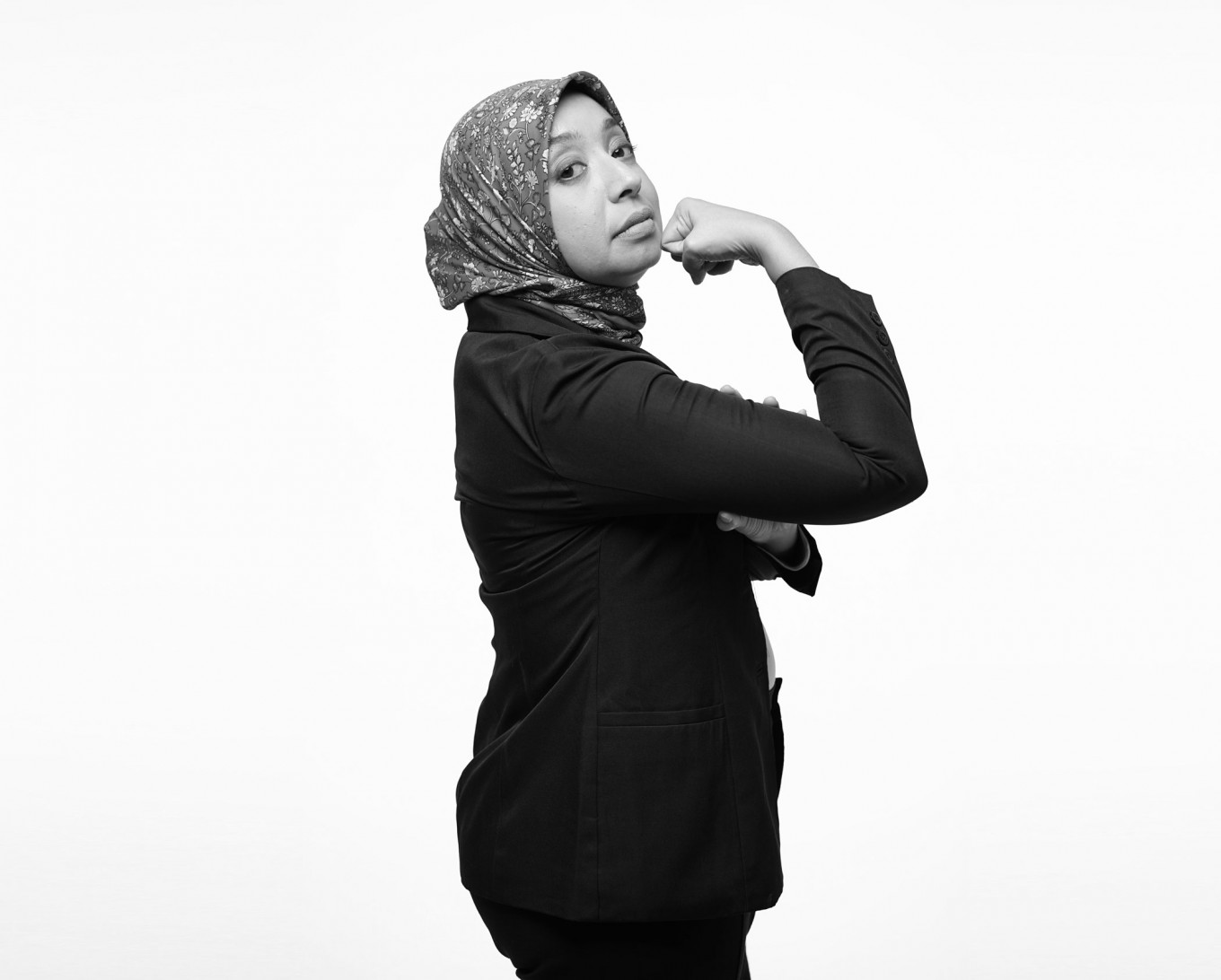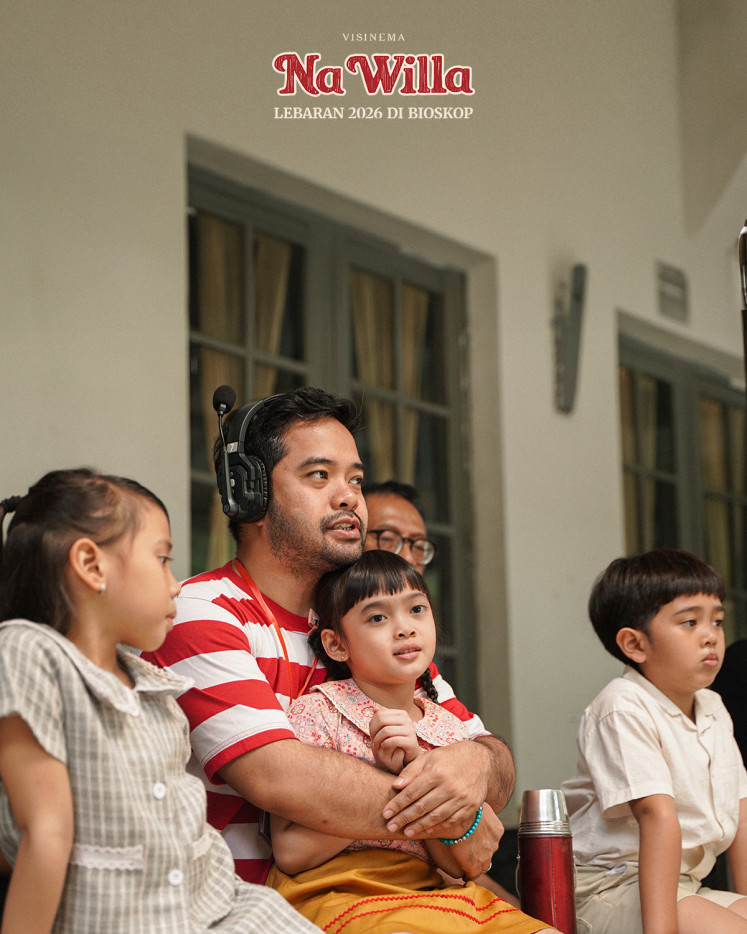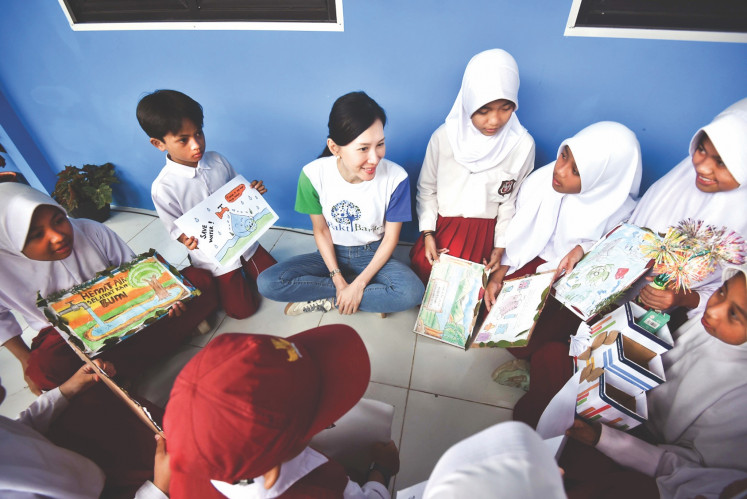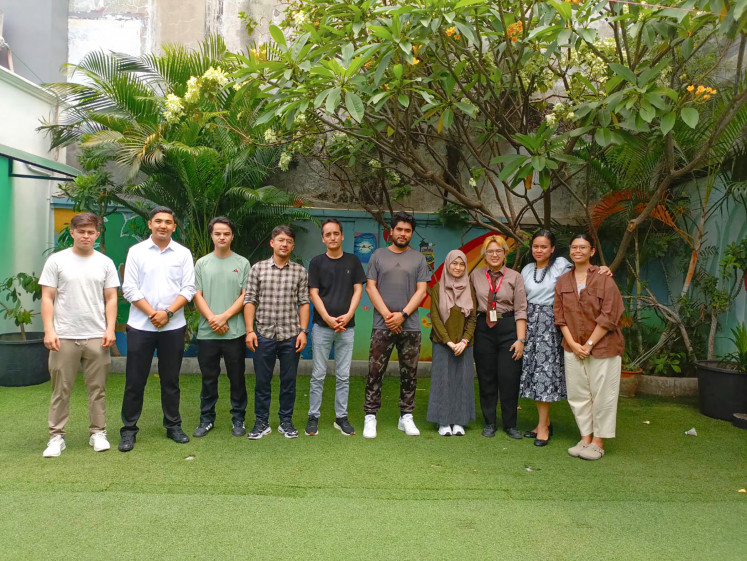(Courtesy of Sakdiyah Ma’ruf)
There’s something about Sakdiyah Ma’ruf that draws you in the moment she steps on stage.
Perhaps it’s her appearance: A hijabi woman in Indonesia’s notoriously male standup scene. Or it could also be her shtick: Politely acerbic barbs delivered with a healthy touch of self-deprecation and humility.
Yet beyond the laughs she gets for laughing about her own upbringing (Hadhrami-Arabic, highly conservative Muslim) or unusual career path (her father telling their neighbors she was pursuing a degree in medicine instead of English literature), there is always a certain edge to them, a certain sharpness that while not enough to draw blood, will certainly leave a mark should you devote more time thinking about them.
I caught up with Sakdiyah shortly after her appearance on The Jakarta Post’s Game Changer discussion on May 18, where she warmed up the stage before joining a panel of women discussing gender issues in the workforce.
While she and everyone struck an optimistic tone throughout the discussion, Sakdiyah’s opening material retained that sardonic tone she is famous for: Spotlighting how women’s voices are so unheard that they needed an event titled #HearHer, or wondering about how having women who study medicine as your neighbors can solve the problem of uneven access to health care in communities.
I certainly did my fair share of laughing during the act, but as I thought more about them, I realized it does feel iffy laughing about someone else’s misfortunes, even if they come from a place of laughing-with instead of laughing-at.

Thank you!
For signing up to our newsletter.
Please check your email for your newsletter subscription.
Her answer to that? It’s to “not become a victim of my own story.”
Read also: Thriving in the third stage of life
“Comedy gives me hope in the sense that beyond a conservative environment, I was also exposed to experiences of violence around me, so the choice of comedy becomes one of the things that give me hope as an antithesis of that violence,” she said.
It seemed like a well-rehearsed statement, as if she had been asked again and again to explain her very being by curious audience members and journalists looking for a punchy quote. It was also a cliché question, I must admit, but her incitement of laughter instead of more violence and hatred is Sakdiyah’s genuine way of breaking the vicious cycle: Not succumbing to self-pity, but empowering herself by finding humor amid the sadness and madness.
At the same time, the power to conceive witty responses also comes with another benefit: allowing Sakdiyah to talk back, or rather clap back, if you will. When an online troll said Muslim women aren’t supposed to go on stage, her blithe response was simply to point out how they were supposedly watching her show anyway, dropping the figurative mic with a “please like and subscribe” on their way out.
Empathetic, not pathetic
Inviting everyone to laugh together is of course the role of a comedian, but I get the sense that Sakdiyah goes beyond clapping back. She told me that beyond the oppressor and the oppressed, it ultimately is about “people who are being stolen from humanity and people whose humanity is being stolen”.
With that being said, the stakes of even touching on such topics, oft sensitive and sometimes taboo, are high. The hardest part of getting a punchline out of all that, she said, is to find a point-of-view that is empathetic toward the marginalized.
“Treading on those already oppressed is easy because the general response of society is to ridicule the downtrodden, like with sexist or ableist jokes. For me, comedy has to have that empathy in that they don’t punch down, but also elevate their stories. Humor, of course, but there’s also levity in that we can uplift the situation,” she said.
Punching up instead of punching down, I offered.
Read also: The uncertainty of being Gen Z: Sisyphus was right, to dream is a cycle
“That’s the word, but also beyond punching. We want to uplift everyone at the bottom.”
Turning the tables was how she described her approach, from being the butt of jokes to having a statement yourself, though she was also quick to point out that it’s not about switching sides to being the one to ridicule others instead.
The English literature major within Sakdiyah gleamed when she cited a quote from George Orwell’s 1945 essay Funny, but not Vulgar she lived by: “The truth is that you cannot be memorably funny without at some point raising topics which the rich, the powerful and the complacent would prefer to see left alone.”
“The standard of offending is whether we are making the powerful and complacent uncomfortable, because that is what we are supposed to do,” she said.
With an eye for hot-button topics from conservatism to climate crisis, Sakdiyah and her punchlines serve as an eye-opener of sorts, if not for the state of comedy in Indonesia, then for the intersection between the self and society in every punchline.
As our conversation neared the 30-minute mark, I was painfully aware of how I was probably keeping her from her lunch, so I fired off a last question in a hurry, perhaps a closing quote about the role of comedy in this day and age?
Surprisingly, this was the first time in our conversation that I’d seen her pause; perhaps the question meant more to her than just a bookend.
She was at a loss for words when describing “the current situation”, understandable given the constant cycles of doom scrolling when you open the news these days, and offered her own view of comedy in a turbulent era: That it allows us to feel that there’s light at the end of the tunnel.
“As crappy [the Indonesian word she used was bobrok] as the world is, I feel like I could still survive another day. It gives us a survival tool, it gives us hope and it allows us to have a genuine heart-to-heart dialogue without being too accusatory, and that makes it an effective medium to educate.”
Going by her own punchlines, it seems laughter really is the best medicine.
Read also: Sal Priadi is in the Mood for Love
This article is part of The Weekender, which comes out on the Saturday edition of The Jakarta Post. It offers a variety of lifestyle and culture articles aimed at enriching your reading experience. Subscribe here to get access to the Saturday edition and all other premium content from the Post.





